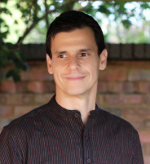The Formula to Enjoy your Job : S = T + S + K
There is a fairly simple explanation as to why over 80% of workers around the world feel disengaged in their jobs. Most of them are not using their strengths at work.

If your current role doesn’t play to your strengths, it is very likely that at some point you will become disengaged. Disengagement not only leads to boredom, but also could have harmful effects on your health and life expectancy. Disengagement quite often manifests its presence in our mind-body system as depression, stress, anxiety, migraines, blurred vision, digestive problems, physical pain and dozens of other conditions, so disengagement is something that you have to take seriously.
The key to success, and to really enjoy your work, is to make sure that you get to use your strengths and talents in whatever you decide to do. But what is the difference between strengths, talents and skills in the first place? Let’s shed some light on this:
A strength is the ability to consistently provide near-perfect performance in a specific activity. A strength can be learned.
Knowledge is the factual and experiential knowledge that you need to acquire for that specific activity. Knowledge can be acquired.
A skill is the ability to do something that comes from training or practice and brings structure to the experiential knowledge. A skill can be learned and developed.
Talent is a special natural ability that manifests as naturally recurring patterns of thought, feeling, or behaviour that can be productively applied. Talents are innate and unique to the individual — they can’t be learned or acquired, only refined.
The key then to building a strength is to identify your dominant talents, then complement them by acquiring knowledge and skills pertinent to the activity. So the strength formula looks something like this: S = T + K + S
Strength = Talent + Knowledge + Skill
Therefore talents, knowledge, and skills — along with the time spent practicing, developing your skills, and building your knowledge base — combine to create your strengths. To better illustrate this, let’s review an example. For someone that claims that teaching is a strength, then she must have:
The knowledge of the course she is teaching (whether it is geography, maths or physics)
The skill of how to run a class (i.e. how to manage a group of students, how to structure a lesson, strategies on how to deal with fast and slow learners in the same group, etc.)
The talent to be able to emotionally connect with students at level that they dearly care about the subject being taught and that ignites their passion for learning. This special ability (talent) was not learnt — she was born with it and it is imprinted in every cell of her body — she just channels it naturally.
Although talents, skills, and knowledge are each important for building a strength, talent is always the most important. The reason is that your talents are innate and cannot be acquired, unlike skills and knowledge.
If you haven’t got a specific type of talent, then I’m afraid you can’t create it, but if you do have a specific talent, you can refine it. All of us have talents, and if you think you don’t have a specific talent, you simply haven’t come to identify what those talents are.
According to the latests studies if you use your strengths, you could work up to 60 hours a week without even noticing it. Also, you are 3 times as likely to report having an excellent quality of life and you are 6 times as likely to be motivated and engaged at work. Most people who do not use their strengths at work feel exhausted and burned out after only 20 hours of work.
It is therefore important that you know yourself. The wisdom traditions of the East have been saying it all along. Lao Tzu, the Chinese philosopher and poet of ancient China said it 2,500 years ago: “Knowing others is intelligence; knowing yourself is true wisdom.”
Whenever you use your strengths in your main occupation or activity, your will keep learning a great deal, your contributions will be very evident and you will feel that everything seems to flow seamlessly. How do you know if you are using your strengths at work; time comes to a standstill when you are engaged in your main activity.
This is practically medical advise: look after yourself by finding a project, role, job or main activity that plays to your strengths. Do it for your health’s sake.
César Gamio, Master Educator, Chopra Center University










